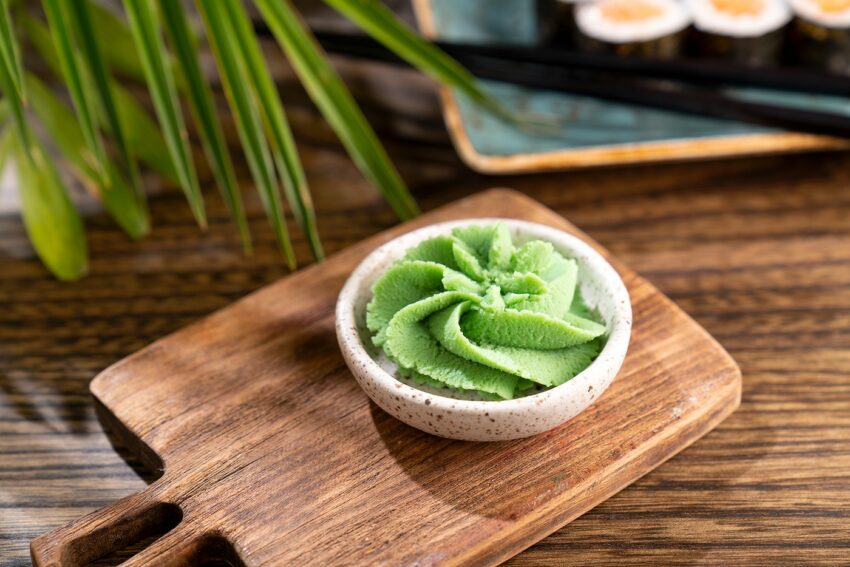A recent study conducted in Japan suggests that wasabi, the green condiment commonly found in sushi, may have memory-boosting powers. The research, led by Associate Professor Rui Nouchi from Tohoku University’s Institute of Development, Aging and Cancer, showed surprising results despite being based on a small number of healthy volunteers.
Previous animal studies had already indicated that wasabi had health benefits, but the team was amazed by the dramatic improvement in memory observed in the participants. The study, published in the journal Nutrients, revealed that the active ingredient in wasabi, called 6-MSITC, is an antioxidant and anti-inflammatory compound that is only found in trace amounts across the plant kingdom.
The research involved 72 healthy volunteers aged between 60 and 80 who were split into two groups. One group took a 100mg dose of wasabi extract before bedtime, while the other group received a placebo. After three months, the group taking the wasabi extract showed significant improvements in both short- and long-term memory, as assessed by standard tests.
The episodic memory scores of the wasabi group increased by an average of 18%, and their overall scores were 14% higher compared to the placebo group. Professor Nouchi explained that the researchers believe 6-MSITC reduces inflammation and oxidant levels in the hippocampus, the region of the brain responsible for memory. The wasabi group performed better in associating faces with names, a common memory-related challenge in older adults.
Professor Nouchi, an expert in dementia prevention, turned to wasabi after observing high dropout rates with other brain health preservation methods, such as the Mediterranean diet, exercise, and music therapy. He found that a daily wasabi supplement would be easier for seniors to take, while potentially offering greater benefits than other anti-inflammatory spices like ginger and turmeric.
The Tohoku team intends to further study the effects of wasabi on various age groups and explore its potential in slowing down memory decline in dementia patients. However, finding real wasabi at local restaurants may prove challenging, as many establishments use dyed white horseradish instead. True wasabi is native to Japan and is notoriously difficult to cultivate, requiring specific growing conditions that take almost two years to achieve.
Nevertheless, the researchers revealed that even a small amount of true wasabi is enough to match the dosage used in the Japanese study. The study was funded by wasabi maker Kinjirushi Co., though the company did not have any involvement in the research itself.
*Note:
1. Source: Coherent Market Insights, Public sources, Desk research
2. We have leveraged AI tools to mine information and compile it

